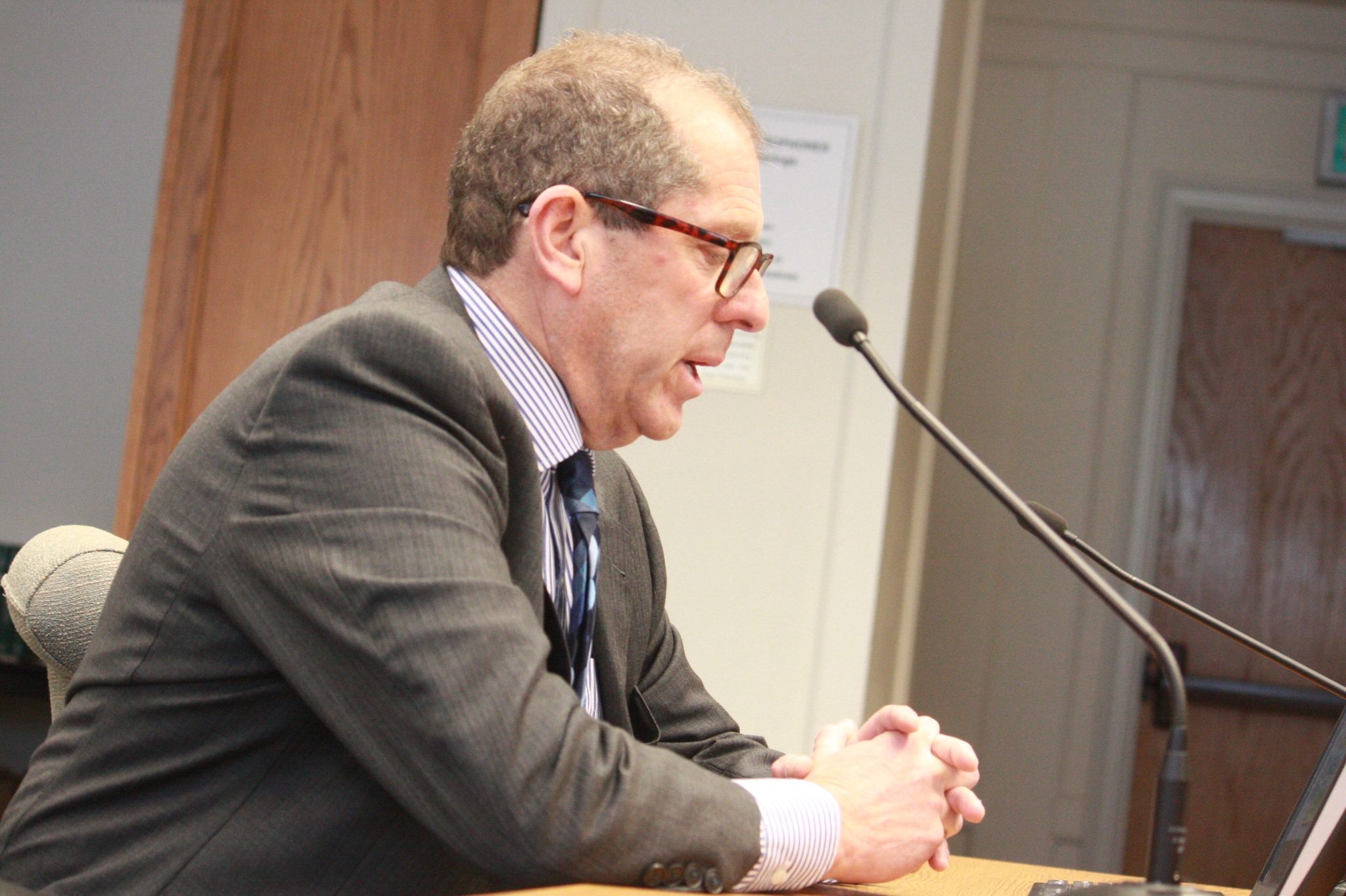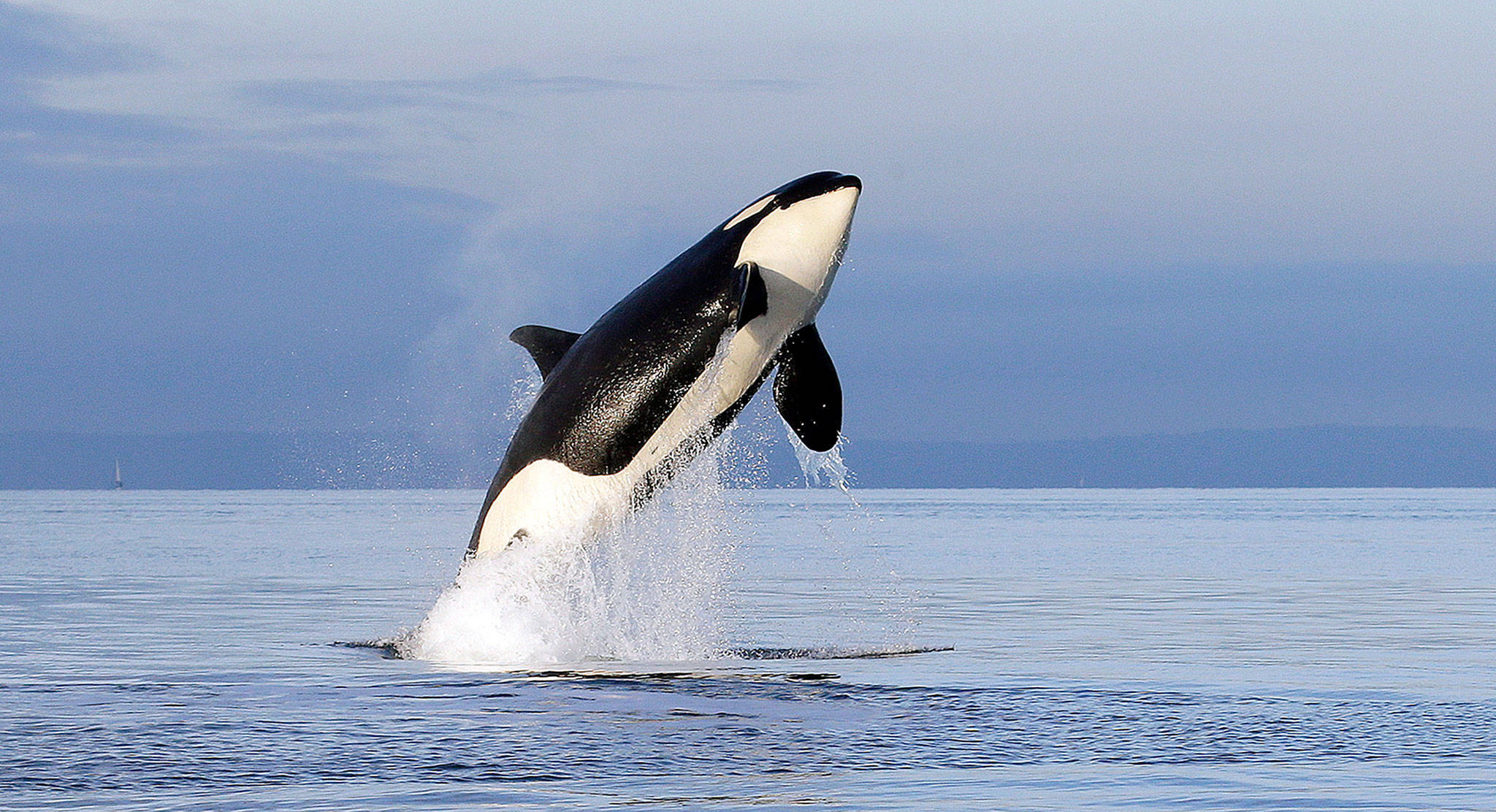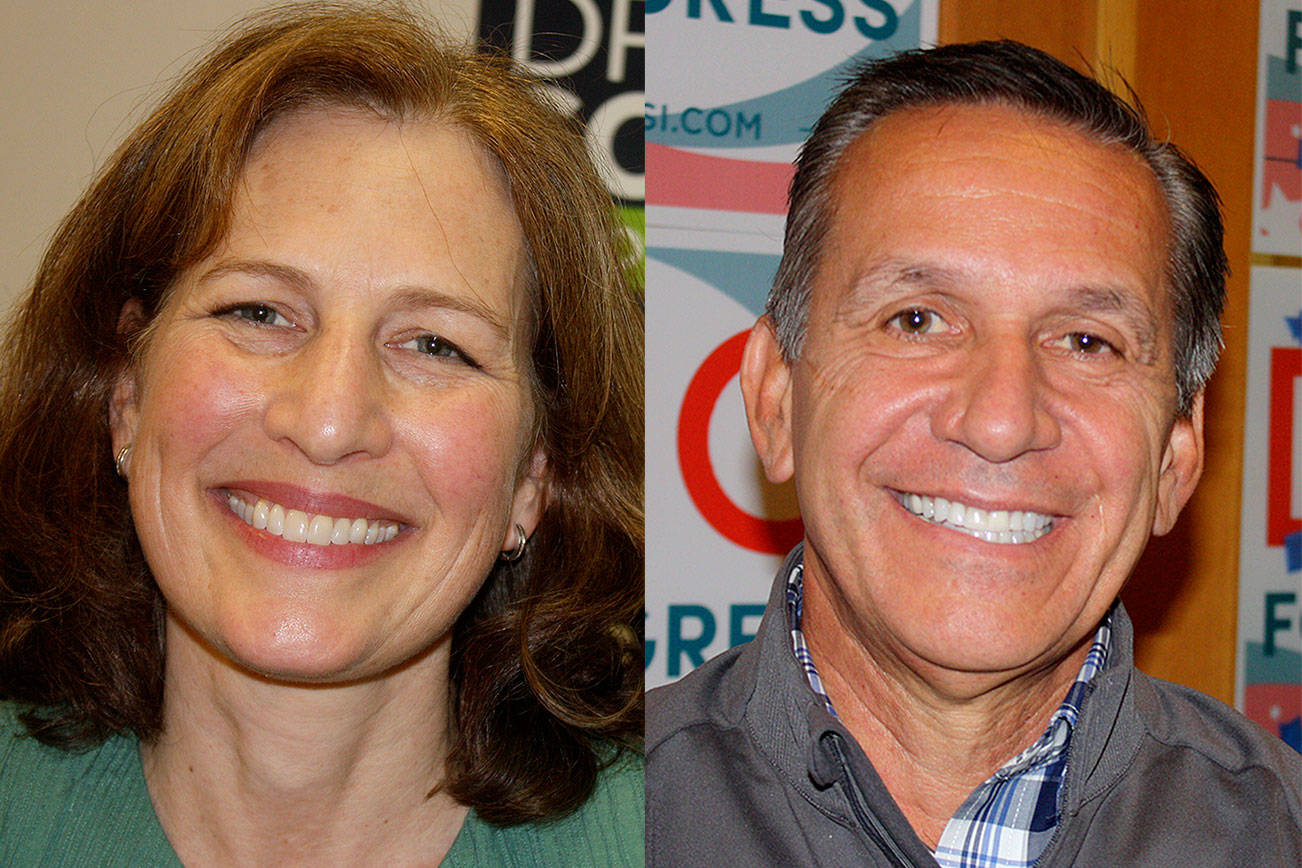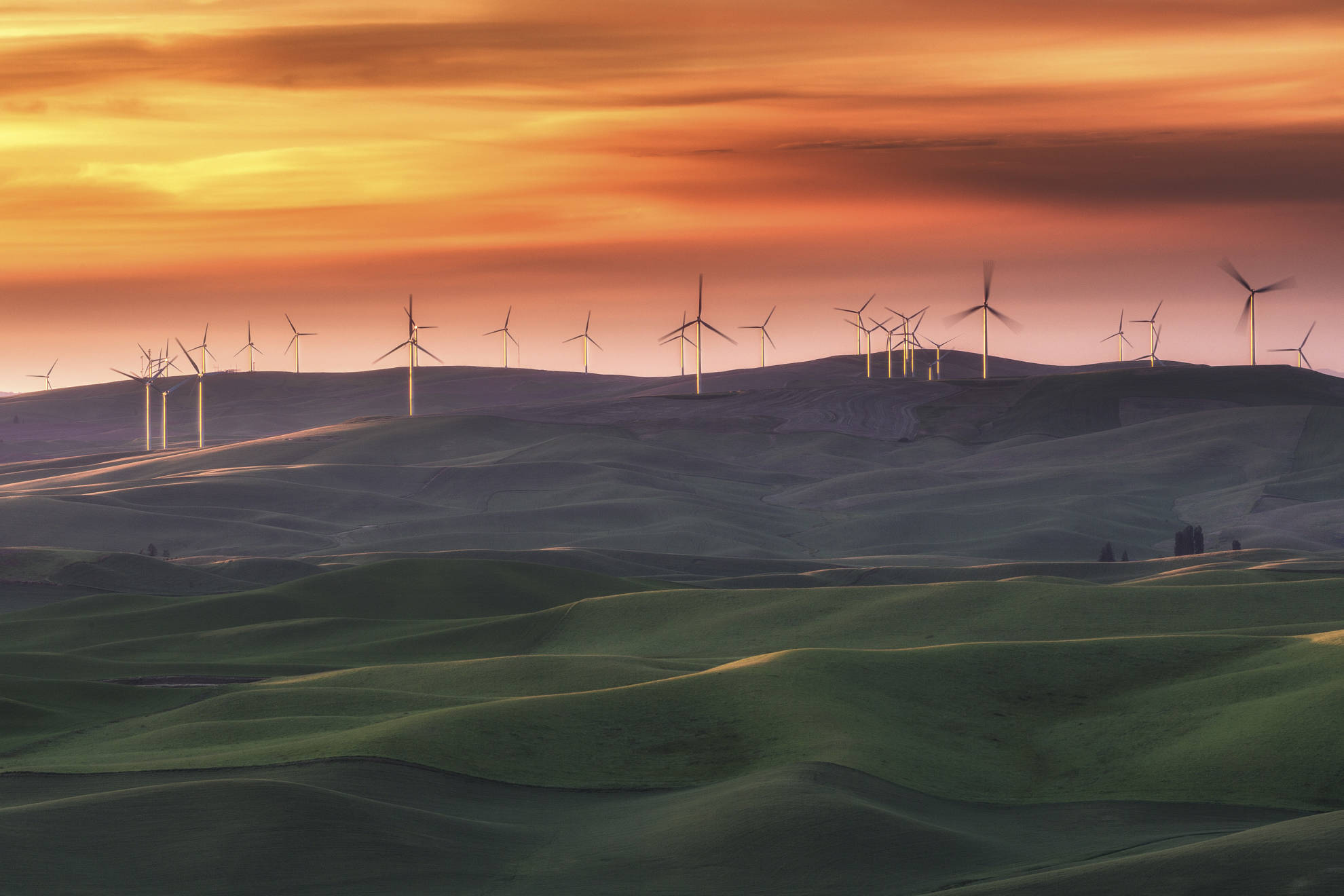A prominent skeptic of mainstream climate science today provided an unusually lengthy testimony before a Washington Senate committee at the invitation of Sen. Doug Ericksen, R-Ferndale.
In his statements, Tony Heller, an independent scientist who also blogs under the name Steve Goddard and tweets as @SteveSGoddard, claimed that several employees of two federal agencies doctored data, misleading climate scientists. The veracity of the statement remains in question.
Committee time is precious in Olympia. Normally, people get two to three minutes to testify before they are cut off. A panel of a few experts can get 30 minutes on some occasions. Heller was allotted 40 minutes.
Heller said he is from Boulder, Colorado. His blog—in which he acknowledges being both Heller and Goddard—says he is from Columbia, Maryland. His degrees are in electrical engineering and geology. Heller is not a part of any organization, but he sometimes participates in work groups held by Myron Ebell, who leads efforts at the Liberatian think tank Competitive Enterprise Institute to deny the findings of climate scientists. Ebell also led Trump’s transition team at the EPA for a couple of months.
This is the second time in two years that a skeptic of mainstream climate science has been invited to testify for at least a half hour in front of the Senate Energy, Environment & Telecommunications Committee, which he chairs.
In 2015, Ericksen invited the Heartland Institute’s science director, Jay Lehr, who cited rising temperatures on Mars, Jupiter, and the Neptunian moon Triton to contend that global warming on Earth is not manmade. Founded in 1984, the Chicago-based Heartland Institute receives a significant amount of its donations from oil companies. In the 1990s, it teamed with a tobacco company in an effort to prove that secondhand smoke is not a health hazard. Today, the Institute is a leading skeptic about global warming.
Ericksen has been the leading opponent of Gov. Jay Inslee’s efforts to deal with carbon pollution and climate change. He also has been the leading advocate for the oil industry in the Legislature. Seattle Weekly could not reach the senator for comment Tuesday afternoon.
The senator is also working in Washington, D.C. during this legislative session as part of the Trump administration’s transition team at the EPA, but he occasionally flies back to handle some Senate duties. Those include voting when the Senate GOP needs him to pass any controversial measures, since the Republicans have 25 votes to the Democrats’ 24.
Erickson did not make the trip for this testimony. Instead he briefly introduced Heller Tuesday by phone from Washington, D.C., and apparently hung up during Heller’s testimony. Ericksen told the committee that he wanted to present an alternative view on global warming—the same reason he gave for bringing Lehr before the committee in 2015.
This irritated fellow committee member Sen. Reuven Carlyle, D-Seattle. “It’s an embarrassment to the state of Washington. … It’s a free open mic to a climate change denier,” Carlyle said, adding that that the energy and environment committee is behind on its work and that the 40-minute lecture takes away from work on oil safety, clean water, storm water, and telecommunications. “Our productivity is down to nothing,” he said.
In his testimony, Heller claimed that possibly a dozen members of the National Oceanic and Atmospheric Administration and the National Aeronautics and Space Administration had changed temperature data so that climate scientists would conclude that global warming is more severe than it actually is.
Seattle Weekly has not been able to identify a reputable source that would confirm such a finding. [UPDATE: During the presentation and in a later blog post refuting aspects of this article, Heller points to comments that a retired NOAA scientist named John Bates made to the Daily Mail as evidence, though his claims have been challenged.]
What we do know is that, as of Tuesday, the EPA’s website stated that the average Pacific Northwest temperature rose 1.3 degrees Fahrenheit in the 20th century, and predicted that the Northwest’s average temperature will rise 3 to 10 degrees by the end of the 21st century. The EPA’s Web site also notes that climate change will impact the Northwest’s mountain snowmelts, irrigation systems, fish populations, and pests and disease that threatens forests.
During his testimony, Heller also referred to a year-old accusation that NOAA fudged its temperature data when it made some adjustments for how temperature measuring had changed over the past 150 years.
As The Guardian newspaper of London reported then, the adjustments were required to account for different types of thermometers being used over that span, as well as variations in the times of day that measurements were taken, as well as the relocation of some thermometers.
The Guardian cited a peer-reviewed study by the University of York and the University of California at Berkeley that double-checked NOAA’s adjustments, and found that those tweaks were done correctly. In fact, The Guardian reported that NOAA’s tweaks verified that while temperatures have been increasing, they have not been doing so as quickly as originally thought.
There has been much speculation in Washington, D.C. on whether the Trump administration will take down the EPA Web site on climate change. (According to some reports, it has already made some changes.)
In his testimony, which was accompanied by a power point presentation, Heller also zipped through numerous newspaper stories dating back to the 19th century that contained varying accounts of the state of the climate, some contending that the climate is warming up, others that the climate is cooling, and still others that predicted floods would be occurring by now due to climate change. He also showed a clipping from an 1846 Australian newspaper that reported that Aborigines were blaming white settlers for an increase in temperatures.
“This is barely a 1950s presentation,” Carlyle had said prior to the presentation.
In the days prior to his appearance, Heller—an active Twitter user, who also believes Barack Obama was not born in the United States and that the New York Times is “fake news”—tweeted photos of the Puget Sound area’s recent snow as arguments against global warming.
Also on Monday and Tuesday, he tweeted:
Dear white progressives. We know that you hate yourselves. Just don't take it out on other people.
— Steve Goddard (@SteveSGoddard) February 7, 2017
The good news is the prostitute who was banging all night next door was evicted. The bad news is climate prostitutes are still employed.
— Steve Goddard (@SteveSGoddard) February 7, 2017
Democrats hate Trump supporters for the same reasons that Nazis hated Jews.
They are just one more hate cult seeking a scapegoat.— Steve Goddard (@SteveSGoddard) February 7, 2017
I saw the (alleged) women at the #WomensMarchOnWashington
America would be a much more intelligent and attractive country if they left.— Steve Goddard (@SteveSGoddard) February 7, 2017
It is ridiculous to say Trump doesn't like immigrants. Just like Michelle Obama, he is married to one.
— Steve Goddard (@SteveSGoddard) February 6, 2017
Also in attendance at the committee meeting was Thurston County resident TJ Johnson, a small farmer who believes the many scientists who say climate change is real and reports that the increasing temperature has led to more diseases and pests in his crops. He stood up at the Tuesday hearing to hold a banner that read: “Heller Lies, Science Real.”
As a security guard took him out of the hearing room, Johnson yelled, “It’s an insult to the people of this state to let him have this platform.”
news@seattleweekly.com
CORRECTION The original title of this story identified Heller as a “Climate Change Denier” and included similar language in the body of the story. While Heller does question the role humanity has played in climate change, as well as the degree and nature of that change, he does not deny that the climate does, in fact, change. Edits have been made to more clearly reflect his position and his argument before the committee. The original story also misstated the order of events concerning Senator Carlyle’s comments, which were made prior to the presentation. The story has been corrected.








